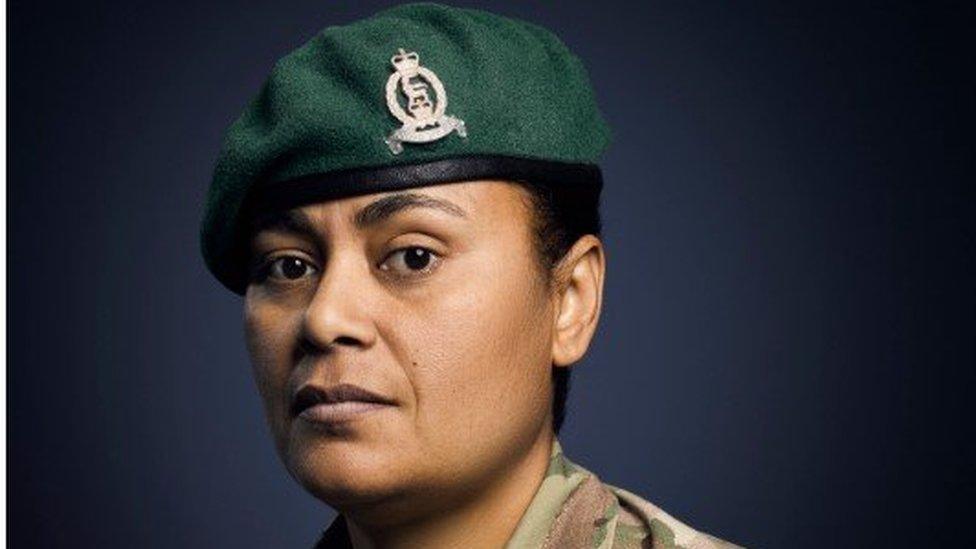'It wasn't just Army banter - it was racism'
- Published
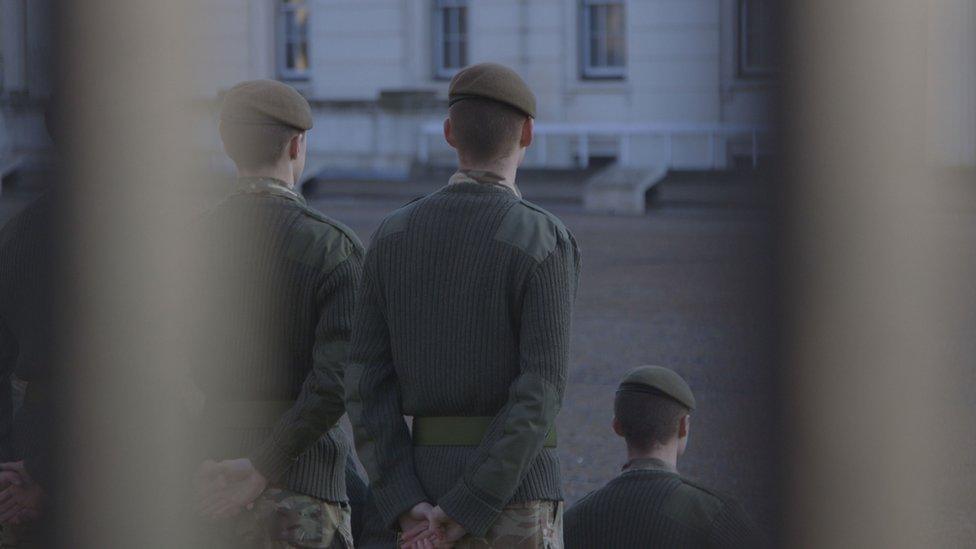
Racism in the UK is in sharp focus and one institution which has committed to tackling the problem is the British army. A new BBC Three documentary looks at how big the problem is and whether enough is being done to tackle it.

When David Nkomo joined the Army in 2009 he was full of ambition. Awarded best recruit when he passed out of training age 23, he served one tour in Afghanistan with the Rifles. But four years later the career he had hoped for was over because he says he could no longer tolerate the racial harassment he'd been subjected to.
"I packed my bags and said I'm leaving. Getting out of the Army. I don't want to be here."
Regularly called "Black Dave" by his unit, to distinguish him from another Dave in the company, he says dark humour was a part of army culture.
"If it's just banter, it's just banter. I'll probably laugh at it 90% of the time," he says.
But while he tolerated the nickname, he says his experiences of discrimination went beyond casual banter to racial abuse by other soldiers. He says it went up the ranks and when he tried to raise his concerns, it made things worse.
"That's why a lot of people don't want to talk, because if you talk, your career is screwed."
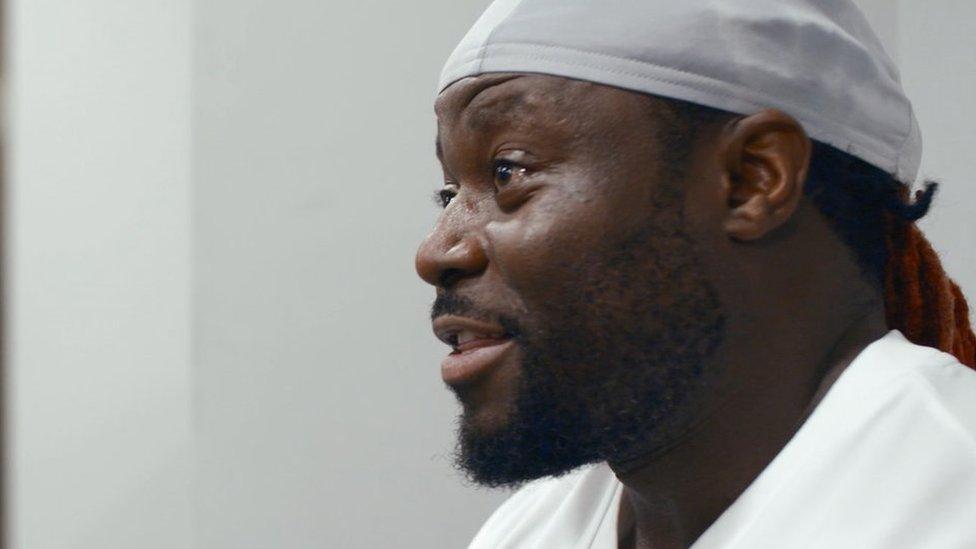
David Nkomo left the Army
His story of racial harassment is backed by Joe Collinson, a white soldier who served alongside him in Afghanistan. Joe says he witnessed many incidents and recounts a time when a number of black soldiers, including David, were put in an overflow dorm, he believes to separate them from the rest of the unit.
White soldiers would walk by and make abusive and racist remarks, such as saying "it stinks in there".
The final straw for David was when his superior officer used a racist and derogatory slur to reprimand him in front of all the other soldiers.
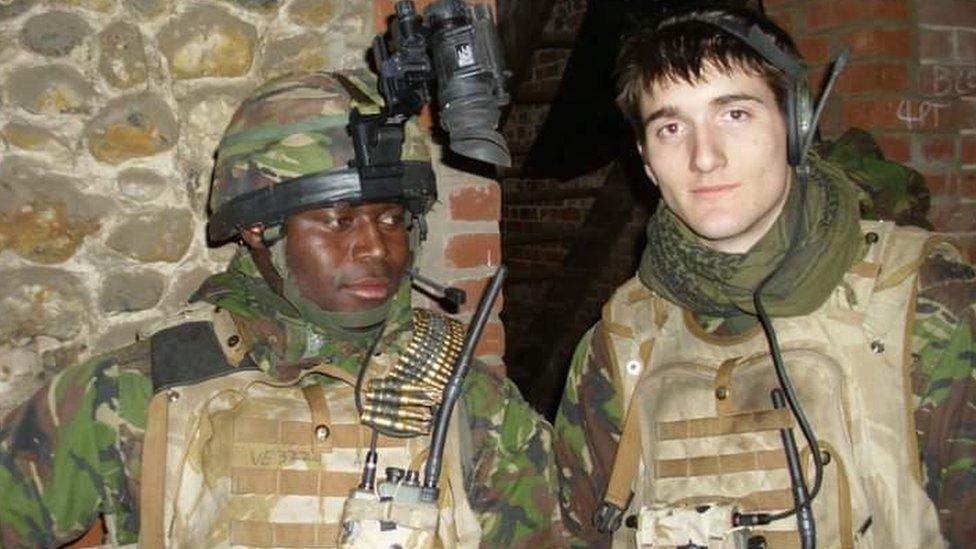
David Nkomo and Joe Collinson served together in Afghanistan
By 2013, he was no longer willing to put up with it and decided to quit. He says he was dissuaded by a senior officer from stating "racial discrimination" as his reason for leaving, so he put down "medical reasons".
"Incidents of racism are occurring with increasing and depressing frequency," Nicola Williams, the service complaints ombudsman told the BBC last year, although she pointed out she did not believe the army was "institutionally racist".
Cases of discrimination account for 25% of all the complaints made across the armed forces, and according to the ombudsman, a "disproportionate" number of those come from ethnic minorities. Black and ethnic minority (BAME) personnel make up just 7% of all service personnel but in 2018 accounted for 13% of complaints - 39% of which were for bullying, harassment and discrimination.
In recent years the Army has launched multiple public drives to recruit more minorities. It recruits heavily from the Commonwealth and two thirds of soldiers that identify as black were born abroad.
Inoke Momonakaya, a Fijian soldier, served with the 2nd Battalion Duke of Lancaster's Regiment from 2005-2012, doing tours in Iraq and Afghanistan. In January 2019 he was awarded £490,000 from the Ministry of Defence for racial discrimination.
He says he and fellow Fijian soldiers were ordered to dress as Taliban insurgents for an army training video, with white soldiers playing friendly forces. White soldiers also wrote his name on a black troll doll, which a senior officer displayed in his office. He says this made him feel "like a second-class soldier".
"I loved the Army," he says. "What happened to me, I don't want any other soldiers to go through."
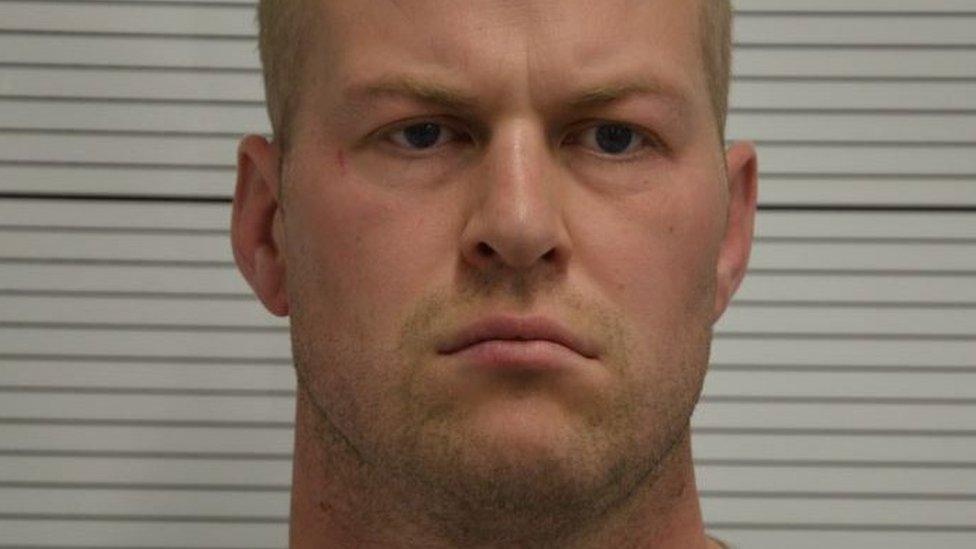
Mikko Vehvilainen was a key recruiter for the banned far-right group National Action
Aside from dealing with racism, the Army has also had to contend with extremism. In March 2018 L/Cpl Mikko Vehvilainen was convicted of being a member of banned far-right group National Action and jailed for eight years.
He was a key recruiter for the organisation and was stockpiling weapons for a race war. Mark Barrett, another soldier who appeared beside him in court, was acquitted and subsequently thrown out of the Army.
During the trial, evidence was shown from a National Action messaging group that both men were added to called, Triple K Mafia. In it they shared racist jokes and pictures.
Mark says he wishes he'd behaved differently but claims he was in a situation where this language felt normal. "They were really bad, racist, anti-Semitic sorts of jokes," he says, but he also claims ignorance over the meaning of many of the racial slurs he says were being used.
Mark believes he was treated unfairly. He denies ever being a member of National Action and told the BBC: "That's 90% of the British army. If they went through everyone's phones in the British army we wouldn't have an army any more, and that's probably the thing that's left me the most bitter is, why me you know?"
One piece of evidence used against Mark in court was a picture from his home at an army barracks near Rutland. In the picture a man, who was serving with Mark, is seen standing next to a burning cross. That soldier is still serving in the Army.
The Army admits there is racism in the ranks but says it is addressing the problem. It would not give any detail on whether the soldier pictured with the burning cross had ever been investigated.
Captain Danny Cousland, chair of the Defence Rastafarian Network, says: "The tragedy of this is that people are put off the army by the actions of a few racists."
A British army spokesman said: "There is no place in the British army for any form of racist view or behaviour and all personnel receive regular diversity and inclusion and respect for others training. They are also made aware of how to report any unacceptable behaviour, including to the SpeakOut confidential helpline, and other means available to resolve interpersonal conflicts such as the Army mediation service.
"The Army takes all allegations of mistreatment very seriously and we encourage any suggestion of unacceptable behaviour to be raised to the chain of command to be investigated accordingly."
"We recognise we need to do more and last year adopted the recommendations of Air Chief Marshal (ACM) Michael Wigston's report on inappropriate behaviours, external."
You can watch the documentary Racism in the Ranks on BBC iPlayer
- Published19 December 2019
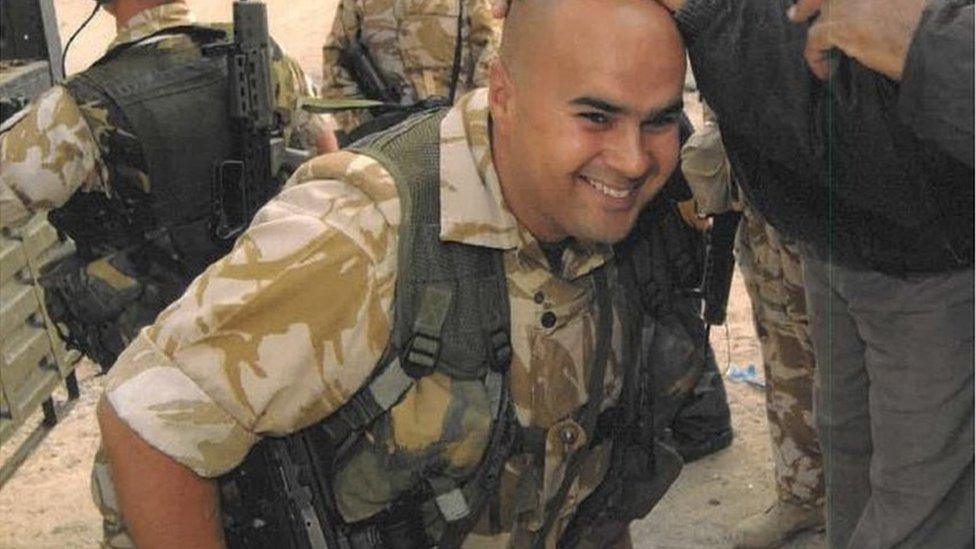
- Published16 September 2019
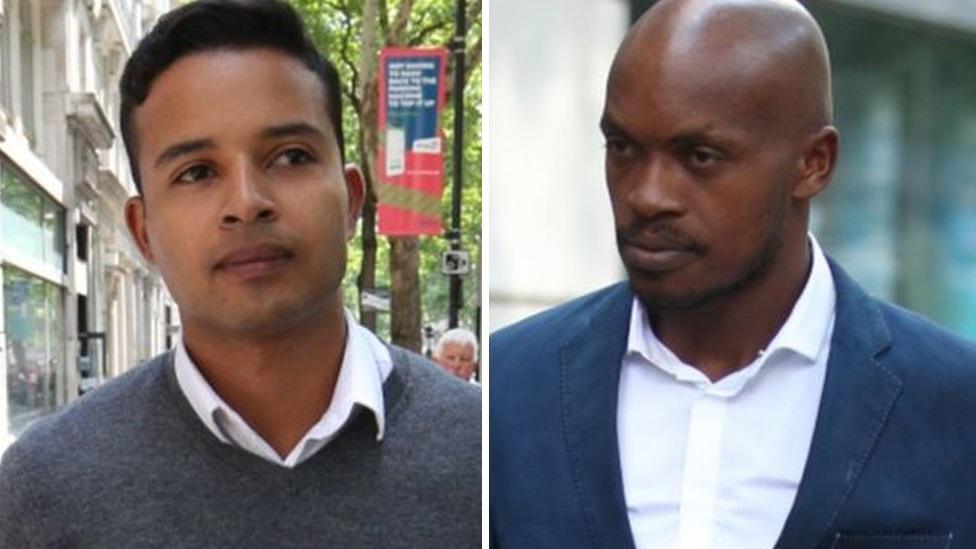
- Published3 February 2018
